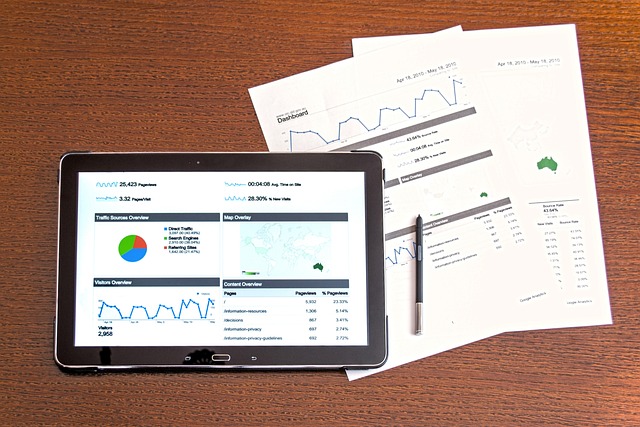AI kitchen-to-table timing monitors are transforming business operations by leveraging data analysis and machine learning. These systems predict market trends, optimize processes, and automate tasks from meal preparation to service, enabling faster, informed decisions in the restaurant industry. By integrating real-time data, they enhance performance, reduce costs, personalize experiences, and gain a competitive edge. Implementing AI for decision-making, including continuous optimization through feedback and technological advancements, is crucial for business success and market adaptability.
“Unleash the power of data-driven decisions with AI business systems. In today’s digital landscape, understanding the potential of Artificial Intelligence is pivotal for organizational success. This article explores the transformative impact of AI in decision-making processes, focusing on efficient kitchen-to-table operations through advanced timing monitors. We delve into strategies that optimize data utilization, offering insights for businesses aiming to stay ahead. From enhancing productivity to improving customer experiences, discover how AI kitchen-to-table timing monitors drive excellence.”
- Understanding AI-Driven Business Decision Systems
- The Role of AI Kitchen-to-Table Timing Monitors
- Implementing and Optimizing Data-Informed Strategies
Understanding AI-Driven Business Decision Systems

AI-driven business decision systems are transforming the way organizations operate by leveraging advanced algorithms and machine learning techniques to analyze vast amounts of data. These systems, akin to AI kitchen-to-table timing monitors, ensure that every step in a process is optimized for efficiency and effectiveness. They can predict market trends, identify customer preferences, and automate routine tasks, leading to faster and more informed decisions.
By integrating real-time data from various sources, these AI systems provide businesses with actionable insights. This enables companies to adapt quickly to changing dynamics, reduce costs, and enhance overall performance. Whether it’s optimizing inventory management, personalizing marketing campaigns, or improving operational workflows, AI-driven decision systems offer a competitive edge in today’s fast-paced business environment.
The Role of AI Kitchen-to-Table Timing Monitors

AI kitchen-to-table timing monitors are transforming the way businesses optimize their operations and enhance customer experiences. These innovative systems leverage artificial intelligence to track and analyze every step of a meal’s journey, from preparation in the kitchen to service at the table. By collecting real-time data on cooking times, queue management, and serving speeds, AI kitchen-to-table timing monitors enable restaurants and food services to identify bottlenecks, streamline workflows, and ensure consistent service quality.
This technology goes beyond mere efficiency by providing insights into customer preferences and behavior. For instance, monitoring preparation times helps in adjusting menus based on popular dishes, while tracking queue lengths allows for dynamic pricing strategies during peak hours. By integrating AI kitchen-to-table timing monitors, businesses can deliver more personalized experiences, reduce wait times, and ultimately drive customer satisfaction and loyalty.
Implementing and Optimizing Data-Informed Strategies

Implementing and optimizing data-driven strategies is a key aspect of leveraging AI for business success. By integrating AI into decision-making processes, companies can gain valuable insights from their data, enabling them to create more efficient operations and targeted initiatives. For instance, AI kitchen-to-table timing monitors can significantly enhance supply chain management by predicting demand, optimizing inventory levels, and reducing waste. These systems analyze historical data, real-time trends, and external factors to provide actionable recommendations.
As these strategies are implemented, continuous optimization is crucial. Regularly reviewing performance metrics, collecting feedback from stakeholders, and staying abreast of technological advancements ensures that the AI systems remain effective and aligned with business goals. This iterative process involves fine-tuning algorithms, updating models based on new data, and adapting strategies to changing market conditions, ultimately leading to improved decision-making and competitive advantage.
AI kitchen-to-table timing monitors play a pivotal role in modern data-driven decision systems, ensuring efficient operations and enhanced customer experiences. By leveraging these innovative tools, businesses can optimize their strategies, streamline processes, and stay ahead of the competition. Implementing AI across various sectors, from food service to logistics, promises significant improvements in productivity and profitability, making it an indispensable asset for any forward-thinking organization.
